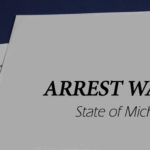Once reasonable suspicion has passed, a driver must be permitted to leave.
A police officer can stop your vehicle if the officer reasonably suspects something criminal is occurring. Once that reasonable suspicion is over, you must be allowed to leave.

The 4th Amendment protects us from unreasonable searches and seizures if police stop takes too long.
A police stop is too long under the 4th Amendment if reasonable suspicion is over. In the seminal case, Torres v Nevada, Mr. Torres was believed to be drunk and out after curfew, so a Nevada police officer detained him. After showing the police officer his identification, it was determined that Mr. Torres was not violating curfew and was old enough to consume alcohol. There was no indication that Mr. Torres’s identification was fake. However, the police officer called dispatch relative to Torres, and it was revealed he had outstanding warrants. Torres was arrested, and in a post-arrest search, Torres informed the officer he had a gun. The trial court determined that the police officer acted reasonably. This case went to the United States Supreme Court, which held that the continued detention of Torres transformed an investigative stop into an illegal seizure in violation of the 4th Amendment. This case is an excellent example of defense counsel who refuses to give up the fight on behalf of their client.
What is necessary for the police to stop a car?
Regarding constitutional law, specifically under the Fourth Amendment of the U.S. Constitution, which protects citizens from unreasonable searches and seizures, police need reasonable suspicion to stop a car. Reasonable suspicion means the officer has a particularized and objective basis for suspecting the person stopped for alleged criminal activity. This is a lower standard than probable cause, which is required to arrest someone or to search their property without their consent, but it requires more than just a hunch.
For a traffic stop, reasonable suspicion might include observing a traffic violation (such as speeding, running a red light, or failing to signal a turn), erratic driving that suggests the driver may be impaired, or the vehicle fitting the description of one involved in a recent crime. The key point is that the officer must be able to articulate specific facts leading to the suspicion of a law violation, which justified the stop.
How does a defense lawyer determine if a police stop is too long?
Defense lawyers utilize a multi-faceted legal analysis to determine if a police stop of a vehicle was unlawfully prolonged, potentially violating the driver’s constitutional rights. This analysis is grounded in the Fourth Amendment of the U.S. Constitution, which protects against unreasonable searches and seizures. The fundamental principles and steps in this analysis include:
- Establishing the Basis for the Initial Stop: Defense attorneys first examine whether the initial traffic stop was justified. Under constitutional law, police must have a reasonable suspicion that a crime has been, is being, or is about to be committed. This reasonable suspicion must be based on specific and articulable facts.
- Duration of the Stop: The defense evaluates the duration of the stop to ascertain if it was extended beyond the time necessary to address the reason for the stop. The U.S. Supreme Court has held that police may only detain a vehicle for the time it takes to fulfill the purpose of the stop, such as checking the driver’s license, registration, and proof of insurance and issuing a ticket or warning.
- Scope of the Inquiry and Actions Taken: The analysis includes reviewing the actions taken by the police during the stop. Any expansion of the stop’s scope, such as asking for consent to search the vehicle without a related suspicion, is scrutinized. The defense assesses whether the officer’s actions were related to and justified by the circumstances that led to the stop or if they constituted an unrelated investigation without an independent justification.
- Reasonable Suspicion to Extend the Stop: If the stop was extended, the defense investigates whether the police had a separate, reasonable suspicion to justify this extension. This includes looking for objective, specific facts the officer observes that could reasonably lead to suspicion of other illegal activities.
- Examining Consent: In situations where consent was given for a search, the defense critically assesses the voluntariness of that consent, ensuring it was not the result of coercion or undue pressure and that the driver was aware of their right to refuse.
- Analyzing the Totality of the Circumstances: Finally, the defense considers the totality of the circumstances surrounding the stop. This holistic approach considers all factors and evidence to assess whether the duration and conduct of the stop were reasonable.
By meticulously applying this legal analysis, defense lawyers can identify violations of the driver’s rights due to an unlawfully prolonged traffic stop. Successfully arguing that a stop was extended without justification can lead to the exclusion of any evidence obtained due to the delay, significantly impacting the outcome of a case.
How Does a Judge Decide a Motion to Suppress
When a defense lawyer files a Motion to Suppress Evidence on the grounds that a police traffic stop was unlawfully extended, resulting in the seizure of evidence that would not have otherwise been obtained, the judge’s decision process involves several key considerations:
- Legal Standards and Precedents: The judge first looks at the applicable legal standards and precedents that define what constitutes a reasonable duration for a traffic stop under the Fourth Amendment, which protects against unreasonable searches and seizures. The judge will consider Supreme Court rulings and relevant case law that outline when a stop can be considered unlawfully prolonged.
- Examination of the Initial Stop: The judge evaluates whether the initial stop was justified based on reasonable suspicion or probable cause. This involves reviewing the reasons provided by the officer for initiating the traffic stop and assessing whether these reasons were legally sufficient.
- Review of the Stop’s Duration and Conduct: The judge then examines the duration and conduct of the stop to determine if it was extended beyond the time necessary to address the issue that justified the stop, such as verifying the driver’s license and vehicle registration or addressing a traffic violation. The judge considers whether any actions the police took during the stop, such as questioning unrelated to the initial reason for the stop or conducting a search, were justified by new, independent reasonable suspicion or consent.
- Analysis of Reasonable Suspicion for Extension: If the stop was extended, the judge assesses whether there was a separate, articulable reasonable suspicion that justified the extension of the stop. This involves looking at the specific facts or observations the officer claimed gave rise to additional suspicion of criminal activity.
- Evaluation of Consent: In cases where the evidence was obtained through a search that the officer claims was consensual, the judge evaluates the voluntariness of the consent. This includes considering whether the driver was informed of their right to refuse consent and whether there were any coercive circumstances.
- Totality of the Circumstances: Ultimately, the judge decides based on the totality of the circumstances surrounding the stop. This comprehensive approach involves considering all relevant factors, including the timing, conduct of the officers, and any evidentiary issues, to determine whether the extension of the stop was lawful.
If the judge concludes that the traffic stop was unlawfully extended and the evidence in question was obtained due to this unlawful extension, the evidence may be suppressed. This means it cannot be used against the defendant in court, which could significantly impact the prosecution’s case.

Michigan Criminal Defense Attorneys Who Are Constitutional Law Specialists
How long can a stop by police be? A police stop is too long if reasonable suspicion is over. If the vehicle stop extends further, it is unconstitutional as an illegal search and seizure. A person must be free to move about unless a police officer has a reasonable suspicion to detain them. This concept is fundamental to the basic laws of the United States. Law enforcement cannot interfere with general freedom of movement without a legitimate reason. Freedom from unlawful search and seizure is an essential mainstay in our justice system.
The attorneys at LEWIS & DICKSTEIN, P.L.L.C. are passionate about supporting the constitution and ensuring it applies equally to everyone. We take this responsibility seriously. Our attorneys are not afraid to take on police departments, prosecutors, and judges who have acted unconstitutionally. We have represented people facing criminal charges in courtrooms across Michigan. Our attorneys command the respect of our adversaries. Our adversaries know that if a LEWIS & DICKSTEIN, P.L.L.C. lawyer is on the other side of the case, they are there to win. If you are facing criminal charges, you need the best representation available.
Call us today at (248) 263-6800 for a free consultation or complete an online Request for Assistance Form. We will contact you promptly and find a way to help you.
















